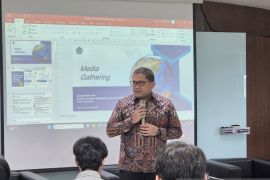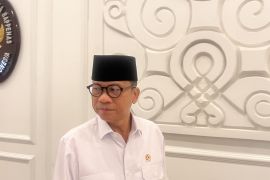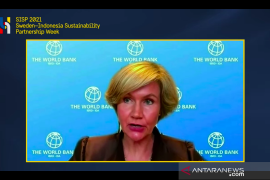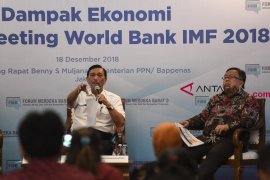It represents a turning point in the efforts towards decarbonization in Indonesia.Jakarta (ANTARA) - The World Bank's Board of Directors had approved a loan of $380 million for the development of the first pumped storage hydro power plant in Indonesia on Saturday.
The power plant will be built on the upper reaches of the Cisokan River located between Jakarta and Bandung, with a capacity of 1,040 mega watts (MW).
"We welcome the project, since the PLTA will be the first one in Indonesia. It represents a turning point in the efforts towards decarbonization in Indonesia," World Bank Country Director for Indonesia and Timor-Leste Satu Kahkonen stated.
In the future, the World Bank will continue to support the country in its various efforts to achieve a resilient, sustainable, and inclusive development that will provide benefits to the nation.
The development of the hydro power plant aims to increase power generation capacity during its peak load, while supporting the energy transition and meeting the country's carbon emission reduction goals.
"The government is committed to reducing greenhouse gas emissions through the development of renewable energy, energy conservation efforts, and the use of clean energy technology," Energy and Mineral Resources Minister Arifin Tasrif said.
In addition, he noted that emission reductions in the energy sector could be driven by various actions, comprising the provision of electricity by renewable energy generators, as well as the implementation of energy efficiency.
Currently, more than 80 percent of the electricity generated for the Java-Bali electricity grid, which provides the energy for 70 percent of Indonesia's population, comes from fossil fuels.
According to the minister, one of the important attempts to support Indonesia's decarbonization agenda is the establishment of energy storage facilities to allow the integration of renewable energy sources into the electricity grid.
"The pumped storage hydroelectric power plant plays a very important role in that attempt," he added.
He also said he believed the facility will have the potential to add significant power generation capacity to meet peak load demand; provide huge storage capacity to enable the receipt of greater amounts of renewable energy; and ease the burden on the transmission network.
Hence, it will result in the provision of more environmentally friendly and reliable electricity, which is able to benefit consumers in the Java and Bali regions.
Translator: Agatha Victoria, Uyu Liman
Editor: Rahmad Nasution
Copyright © ANTARA 2021












